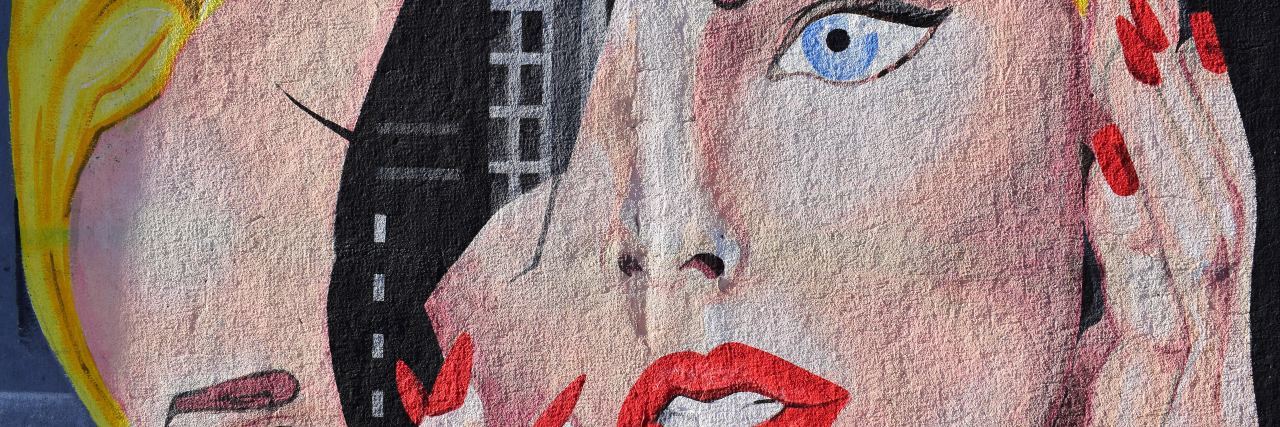I have physical problems with my body. I was born with an extremely rare skin condition called cutis marmorata telangiectatica Congenita, which affects my leg. It might be easier for you to google it rather than try and understand my “fake” medical explanation (most of it carefully noted from “House”), but basically you can see all the veins in my right leg (it’s not a pretty sight), and that leg is shorter and skinnier than the left one. When I was born, the midwife called it “a wasted limb” (ha, I proved her wrong). Due to the difficulties I still have, it affects my foot, causing me to limp, especially after a long walk or run or a heavy night out. This means that friends who agree to go shoe shopping with me are keepers because sizes become irrelevant — it is more a case of which pair of shoes make me trip over myself the least.
I also have depression and anxiety — which are not so easy to spot.
With my two very different conditions, I’ve often found the difference in reactions to be remarkable. Still, in my experience, a physical illness is seen as being easier to deal with than a mental one.
Due to the issues with my foot, if I’ve been walking for a while, I start to limp (not helped by odd-fitting shoes). I live with my friends in Liverpool and every day we walk up a steep hill to get back to our flat. I had been out alone all day one weekend and I was aware my foot was throbbing more than usual. It wasn’t until we reached some traffic lights that I took a look. It wasn’t a pretty sight. My foot was completely covered in blood.
The reaction from people at the traffic lights was initially shock, unsurprisingly — but it was the help and concern that moved me. I was offered plasters and even money to get a taxi home. This left me thinking. Blood is repulsive — nobody likes to see it — but it gets a reaction. It creates concern.
It is harder for people to know when you are hurting on the inside.
If you are quiet, even teary, people are not so quick to respond with such concern. It could be your “time of the month.” Or maybe you’re extra sensitive because of exams. Hell, you could even be considered rude or weird. A panic attack is often met with awkwardness. The fact that you could be in any kind of serious pain is often too far down people’s lists of the usual symptoms of depression and anxiety.
The point being that my cutis marmorata telangiectatica Congenita may be a condition that needs attention, treatment and awareness. But why is my brain any different or less important? Why is my leg condition seen as something I can’t help — something I deserve some kind of bizarre sympathy for? Why is my mental health my fault and something I should “get over?”
I may not have blood pouring from my head, but sometimes I wish I did. Maybe then I wouldn’t feel so guilty.
We want to hear your story. Become a Mighty contributor here.
Unsplash photo via Chris Barbalis

